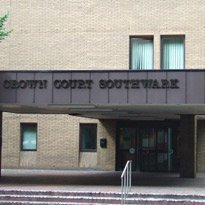The jury trying former iSoft executives accused of misleading the stock market has been discharged after failing to reach a verdict.
A judge at Southwark Crown Court this morning discharged the jury considering the case of Stephen Graham, Timothy Whiston and John Whelan, after two weeks of deliberations and a three month trial.
The three men were accused of plotting with iSoft co-founder and former chief executive Patrick Cryne to create “huge discrepancies” in the accounts published by the company in the early 2000s, to bolster its position and secure their own fortunes.
Cryne was not before the court, having become ill during the proceedings. The three others now face a possible retrial.
During the court case, which was brought by the Financial Services Authority, the men were accused of using a forged contract to recognise revenues from a £44.3m contract with the Irish Health Services Executive as early as October 2003, even though the deal was not signed until April 2005.
The trio allegedly lied about winning the contract to bag lucrative personal bonuses and misled the markets by transforming an £11m loss into an apparent £9.4m profit in the company books.
The prosecution alleged they did this to secure a take-over with rival Torex and to secure their own fortunes, salaries and bonuses.
But today, after a trial costing the taxpayer millions, the jury of eight women and three men at Southwark Crown Court failed to reach verdicts.
Judge Anthony Leonard QC discharged the jury after it had deliberated for 57 hours and 41 minutes – the equivalent of two weeks. A date for the retrial will now be fixed on 7 September.
Graham, Whiston and Whelan all insist they were not involved in the conspiracy. Barristers argued there was no evidence to link them individually with the forgery.
Giving evidence, Graham also said failing to agree the deal would not have affected the company’s success, because by then it was clear that only a few companies were in the running for the huge deals that were being offered by the National Programme for IT in the NHS in England.
The men all denied conspiracy to make misleading statements promises or forecasts, contrary to the Financial Services and Markets Act 2000 and section 1 of the Criminal Law Act.
None have any connection with iSoft today. The company, based in Banbury, Oxfordshire, was sold to Australian software firm IBA Health after a takeover in October 2007. It has since been sold to US company CSC and is now part of CSC’s healthcare group.

